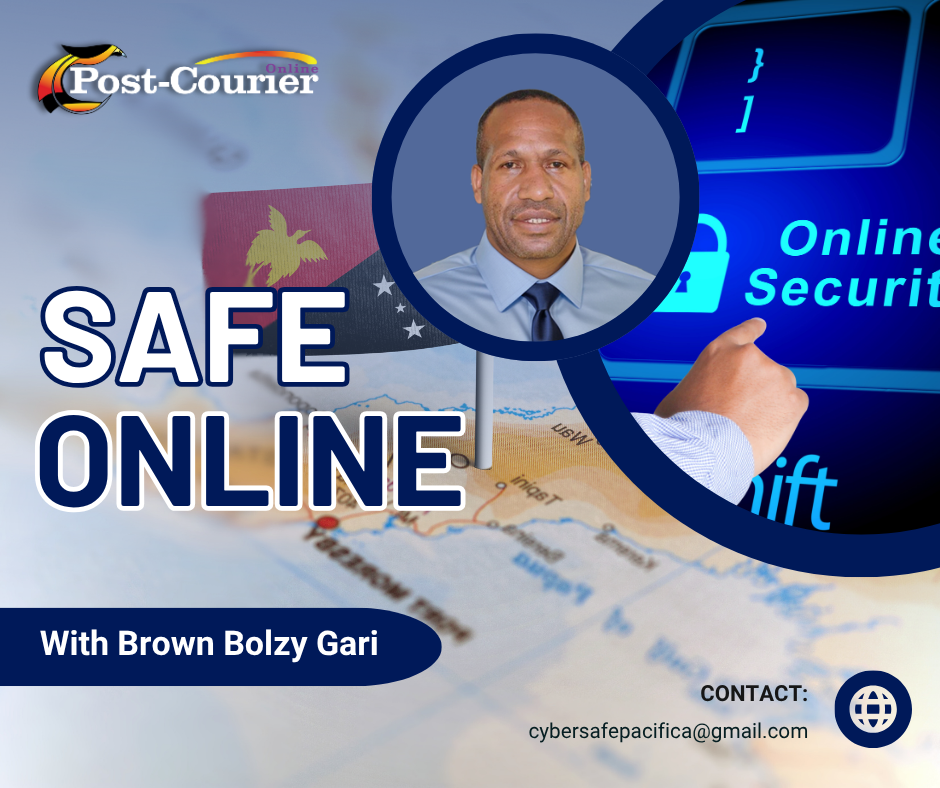Copyright postcourier

By Brown Bolzy Gari Every day, Facebook, TikTok, and WhatsApp are flooded with investment pages promising quick profits, especially in Bitcoin, Forex, or e-money trading. They look professional with logos, videos, and photos of people living large overseas. They promise you that if you invest a small amount today, you’ll become rich tomorrow. It looks real. It sounds convincing. But 90% of the time, it’s a scam. Many of our people in Papua New Guinea and across the Pacific Islands have already lost thousands of kina to these online thieves. They’re clever and patient. They use local names and even speak Tok Pisin or Solomon Pigin to sound trustworthy. Behind the pretty page is a fake operation designed to steal your money. So how can we tell what’s real and what’s fake? Let’s go step by step. 1. Look Carefully at the Page Name and URL (Universal Resource Locator) Most fake pages use names similar to real companies, like “Bitcoin PNG,” “Crypto Trading Pacific,” or “Forex Rich Club.” They might even steal the logo of a well-known financial institution to look legitimate. If you click the page name, check the URL (the website link). Real businesses have professional websites that end with “.com,” “.org,” or country codes like “.com.pg.” Fake pages often use long, messy URLs or Facebook-only profiles with no official domain. ? Rule of thumb: If it exists only on Facebook or WhatsApp and has no proper website, it’s likely fake. 2. Check How Long the Page Has Existed Every Facebook page shows when it was created. Scroll to “Page transparency” and click it. If it says the page was created just last month or a few weeks ago, that’s a red flag. Scammers open new pages every time they get exposed or reported. Real companies, on the other hand, have a long online history, customer reviews, and verified contact information. 3. Watch for Unrealistic Promises The line is always the same: “Invest K500 today and get K5,000 in three days!”“Join now, and we’ll multiply your money 10 times!” These are emotional traps. They target your hope, greed, and curiosity, but no genuine investment grows that fast, not even the best ones in the world. In real life, investment returns take time and depend on real business growth, not magic or secret trading bots. ? Remember: If it sounds too good to be true, it’s a scam. 4. Verify Their Registration and Contact Details Before you invest, always check whether the company is registered. In Papua New Guinea, you can check with the Investment Promotion Authority (IPA) or the Bank of PNG. In Fiji, Samoa, Solomon Islands, or Vanuatu, each country has its own business registry. If the so-called investment page can’t give you a registered business name, office address, or operating license, stay away. Some scammers even use fake registration numbers, so cross-check them directly on the government website. It only takes a few minutes and can save you thousands. 5. Test Their Communication Style Fake investment agents rush you to deposit quickly. They’ll say: “Limited offer! Send your payment now to secure your spot.” They use pressure and urgency to stop you from thinking clearly. They avoid video calls or official emails and prefer WhatsApp or Messenger. Real companies will give you time to decide. They will answer your questions calmly and provide written contracts, receipts, and legal documents. ? Rule: Anyone rushing you to pay immediately is a scammer. 6. Follow the Money Trail Always check where your money is going. If they ask you to deposit into a personal bank account, that’s a huge warning sign. Legitimate businesses never use private accounts for client transactions. They use company accounts with proper receipts and references. If you’re asked to send money to a person you’ve never met, through mobile money, or overseas, stop right there. Once you send it, it’s gone for good. 7. Check Reviews and Ask Around Don’t just trust what they say about themselves. Search their name on Google or Facebook and look for reviews or complaints. You can also ask around by talking to your church leader, village chief, or a trusted friend who understands money and technology. Someone in your circle might already know that the scheme is fake. Sometimes, even a quick chat with your local bank officer or teacher can save you from being scammed. 8. Protect Your Personal Information Fake pages don’t just steal money; they also steal data. They’ll ask for your ID, phone number, bank account, or NID photo “to open your investment account.” Never share personal details with strangers online. Your identity can be used to open more fake accounts and scam others under your name. The Role of Community Leaders In the Pacific, we respect our village leaders, chiefs, and church elders. They hold influence and guide the people. When they understand these online tricks, they can protect the whole community. Cyber awareness should not stay in classrooms alone. It must reach the villages, markets, and church groups where real people make daily decisions. Final Thoughts Online investment scams are getting smarter, but we can stay ahead through awareness and unity. Don’t rush to invest because of pressure or excitement. Take your time. Verify. Ask. Learn. Your hard-earned money is precious. Protect it like you protect your land and family. When in doubt, don’t invest. The safest investment is always in education and digital awareness. If you suspect a fake page, report it to Facebook and inform CyberSafe Pacifica at email cybersafepacifica@gmail.com so others can be warned. Together, we can stop scammers and keep our Pacific communities safe online.



